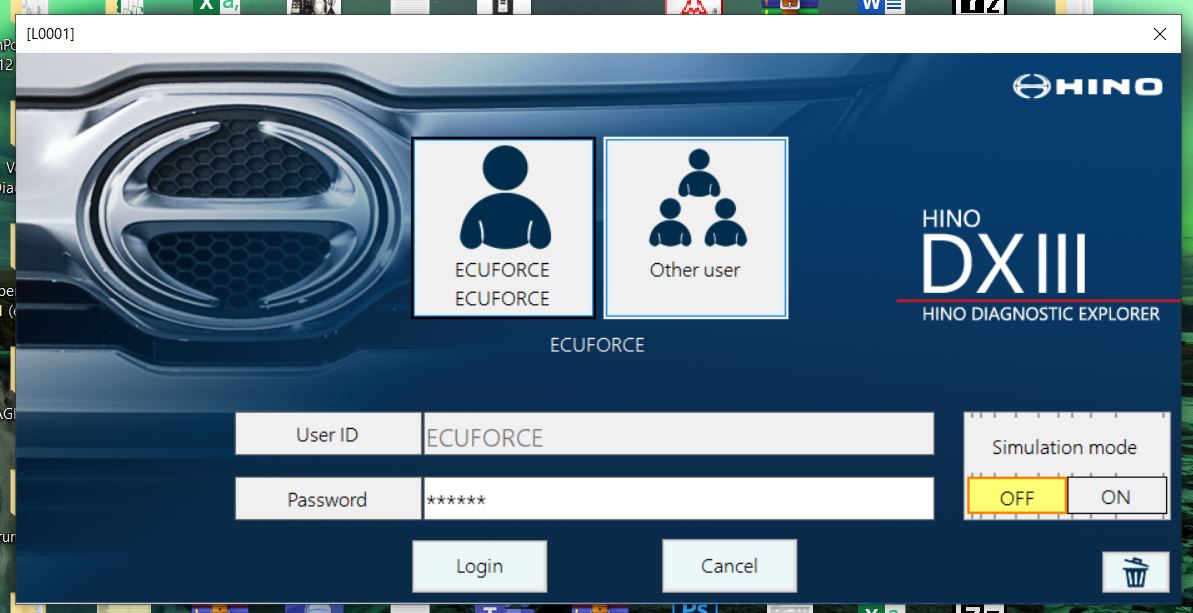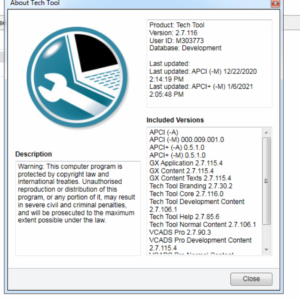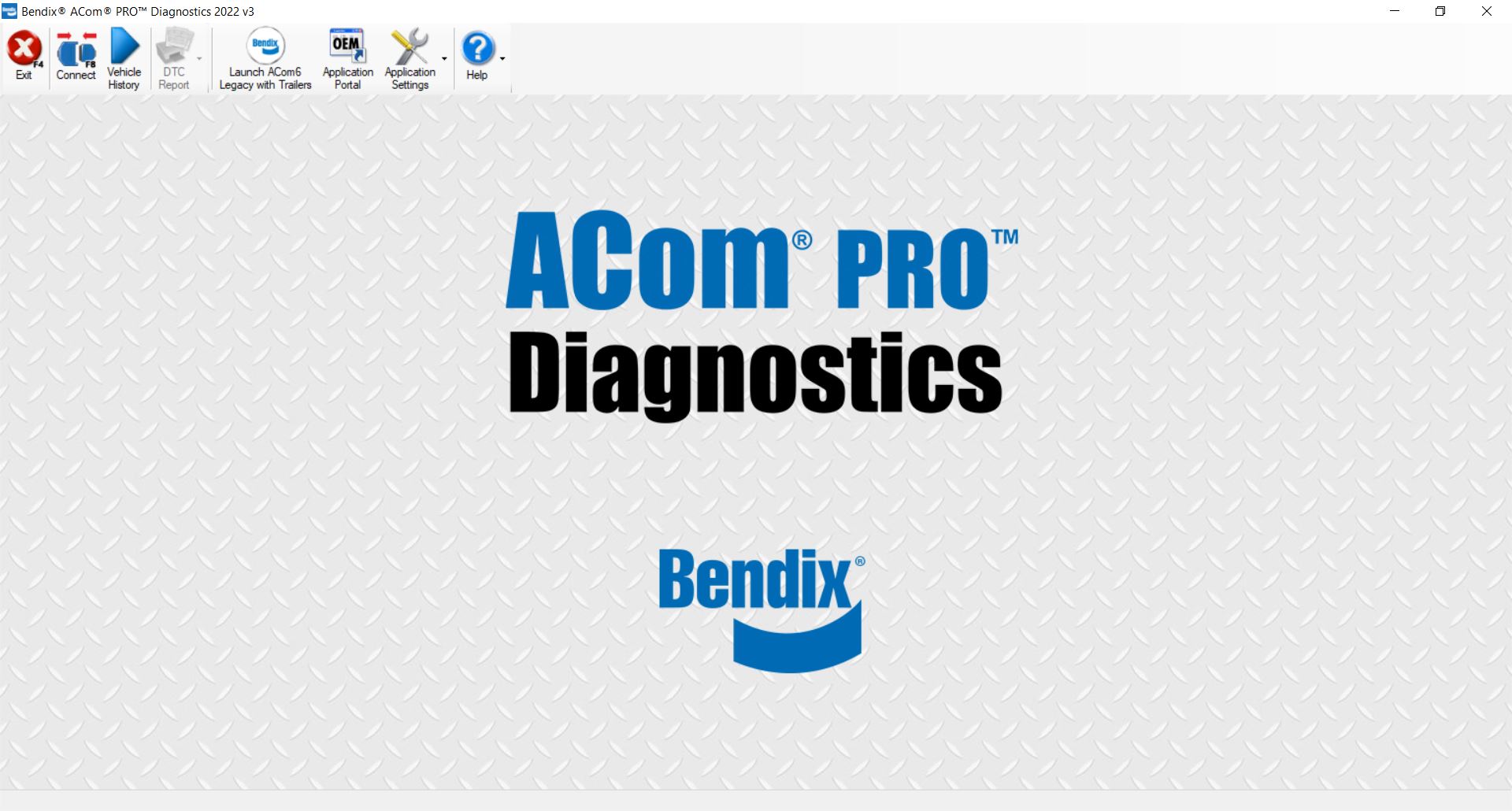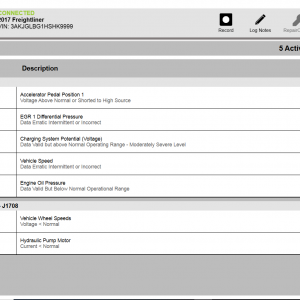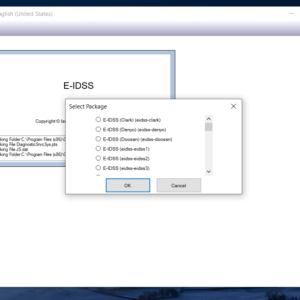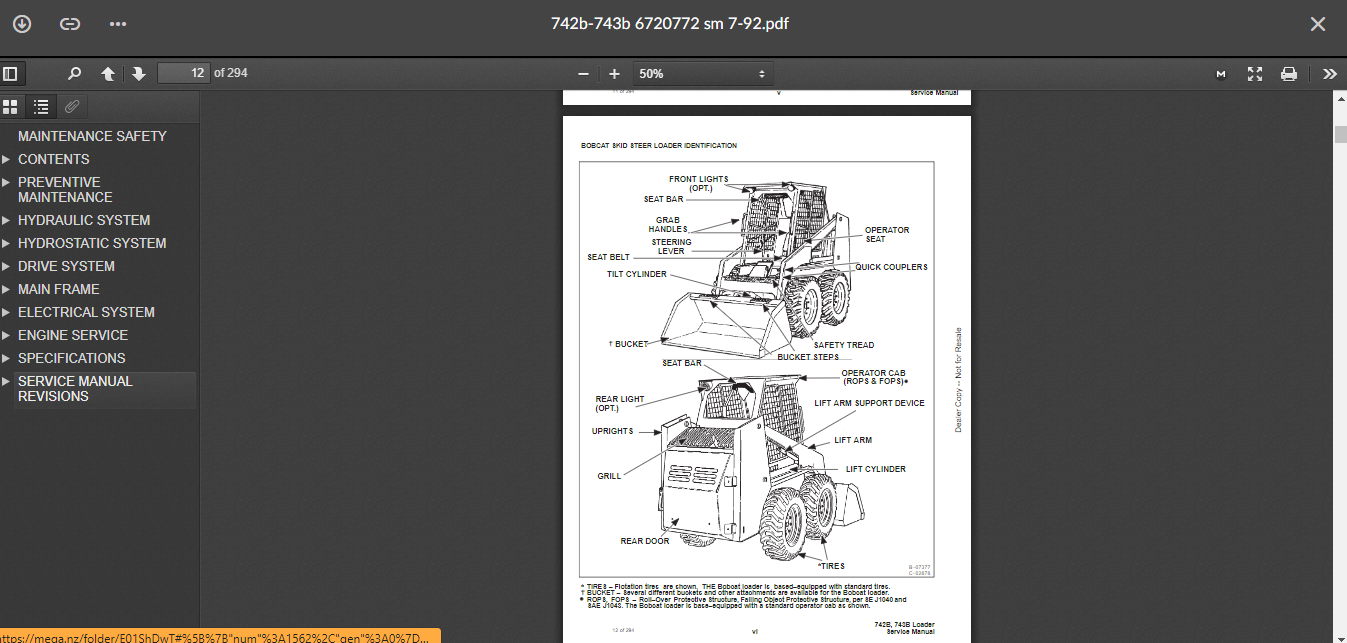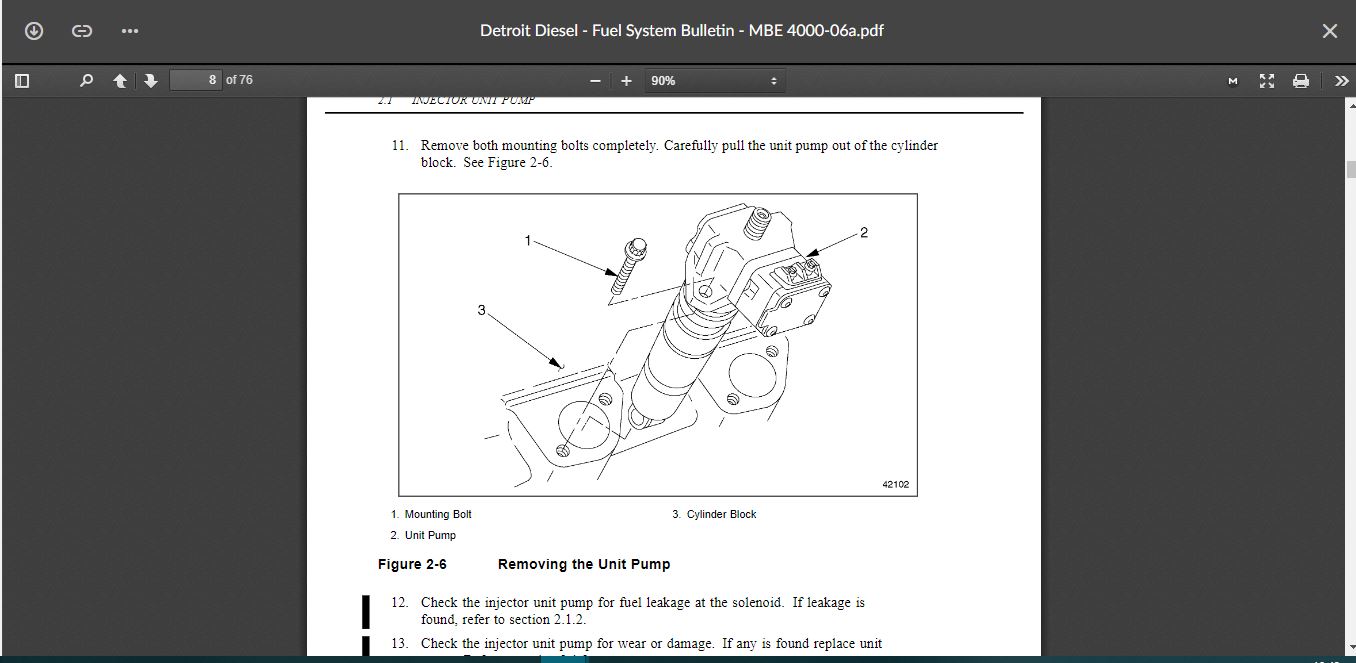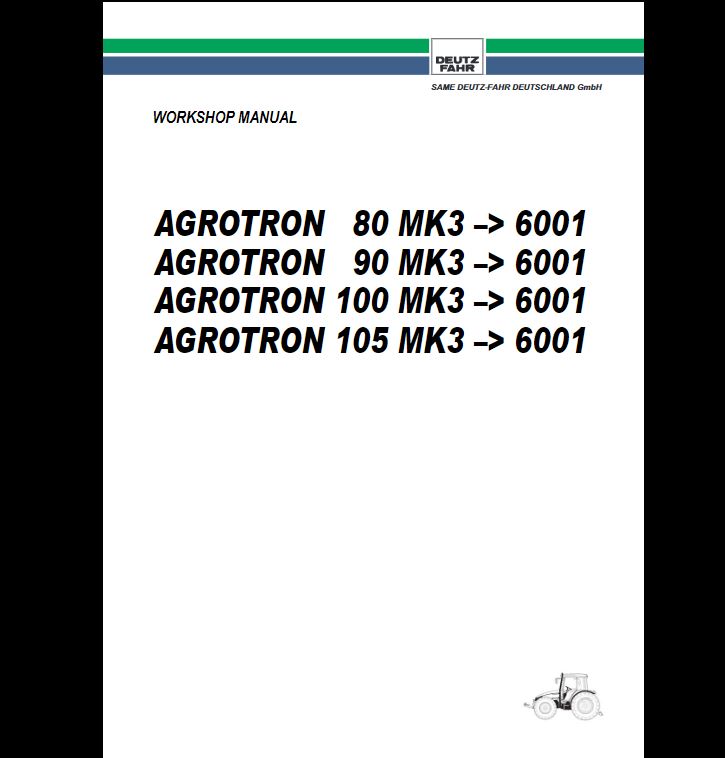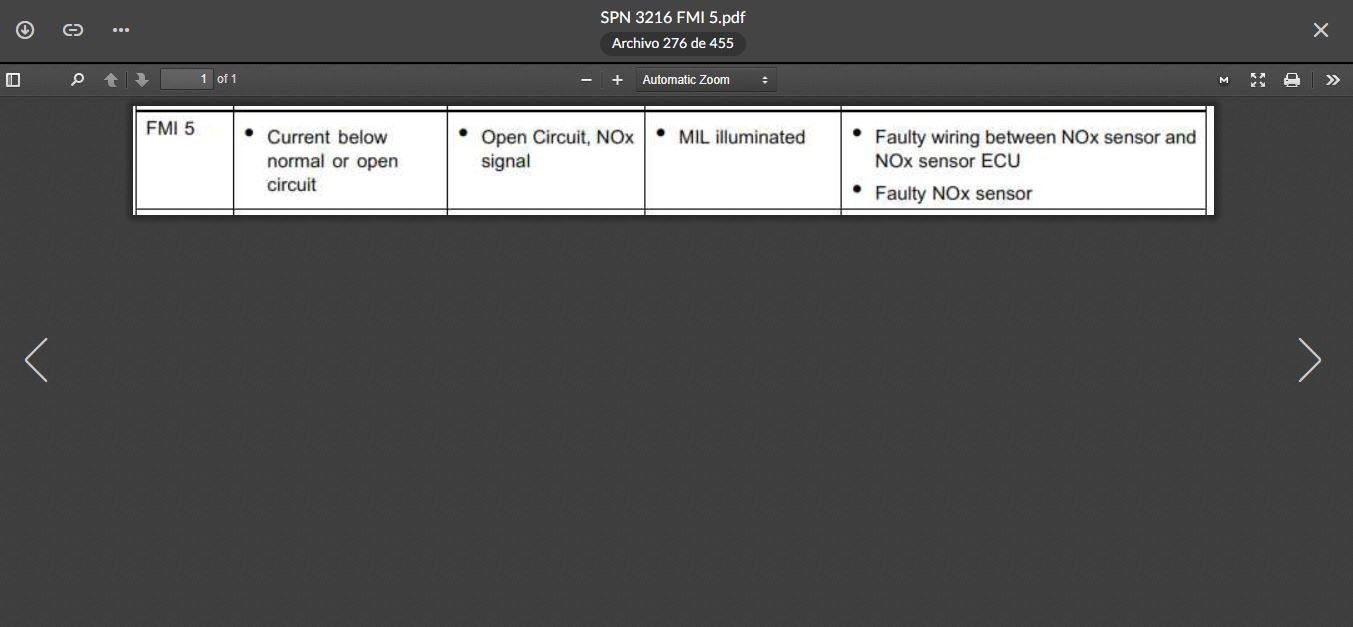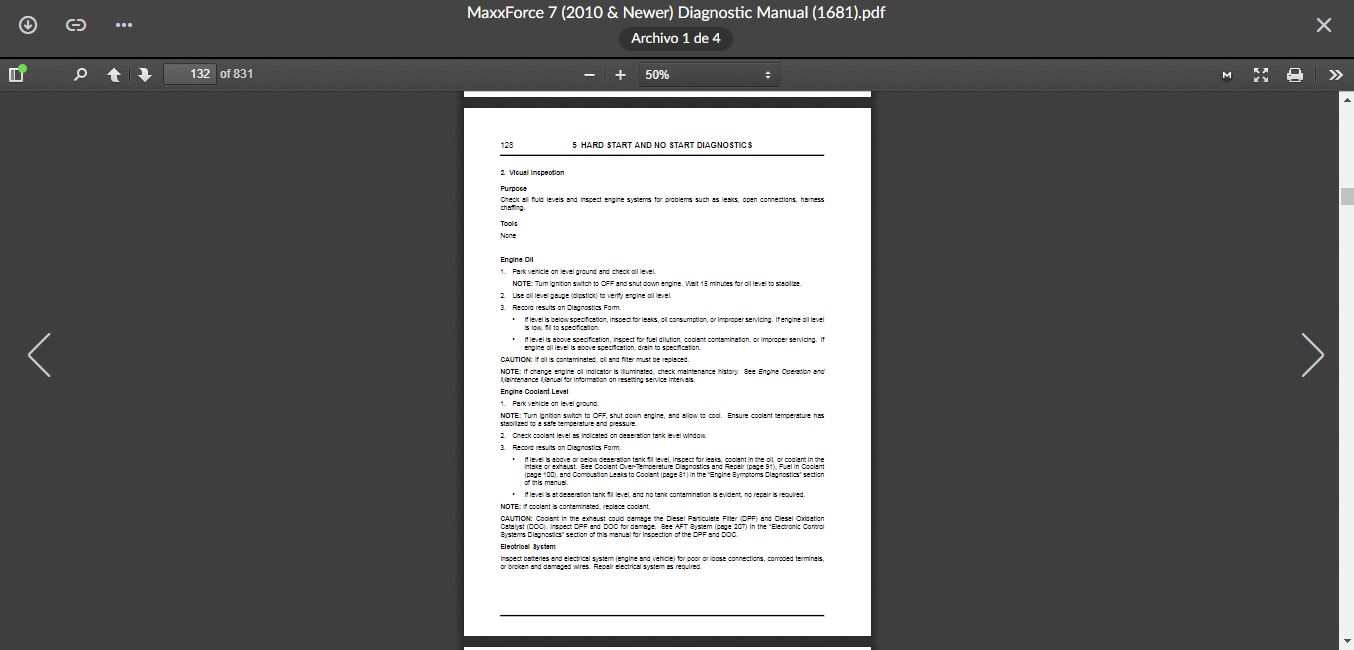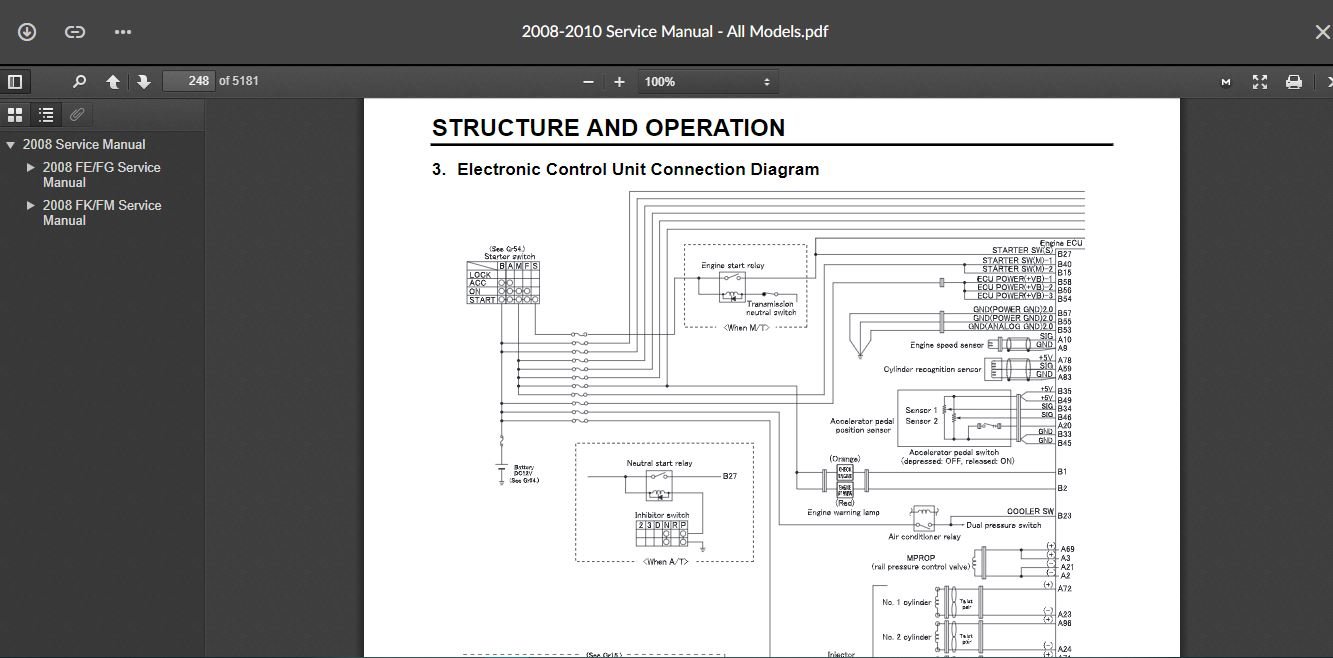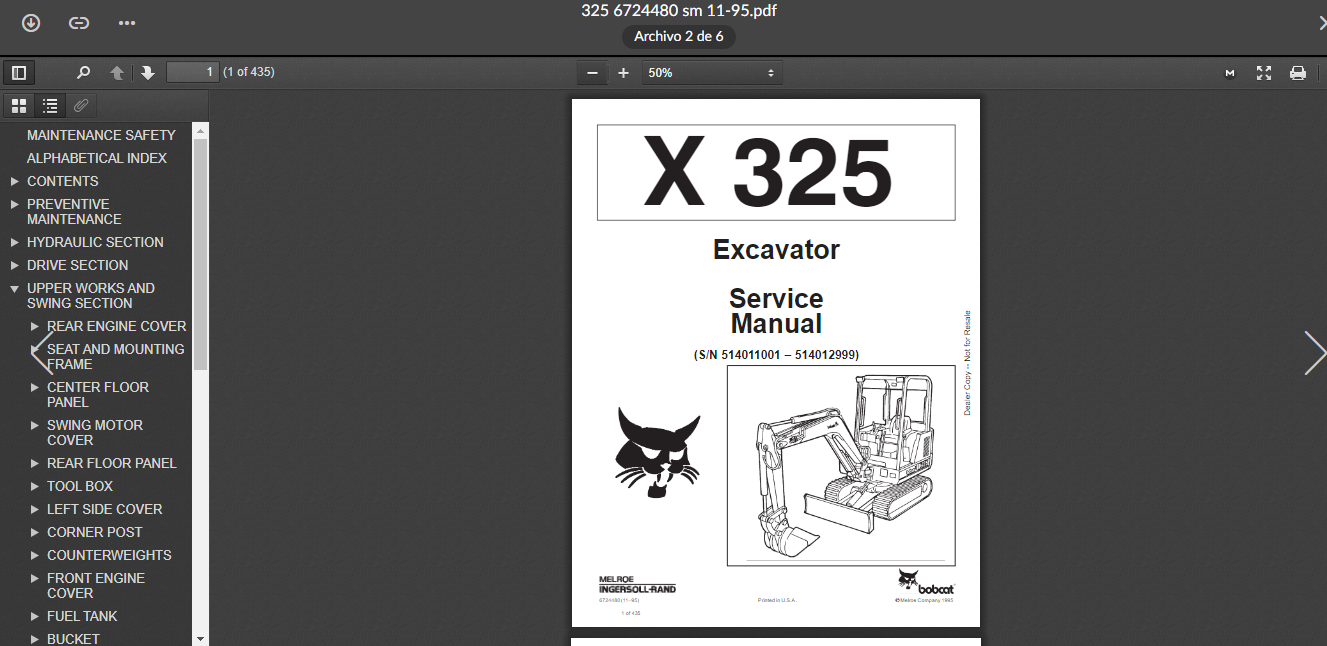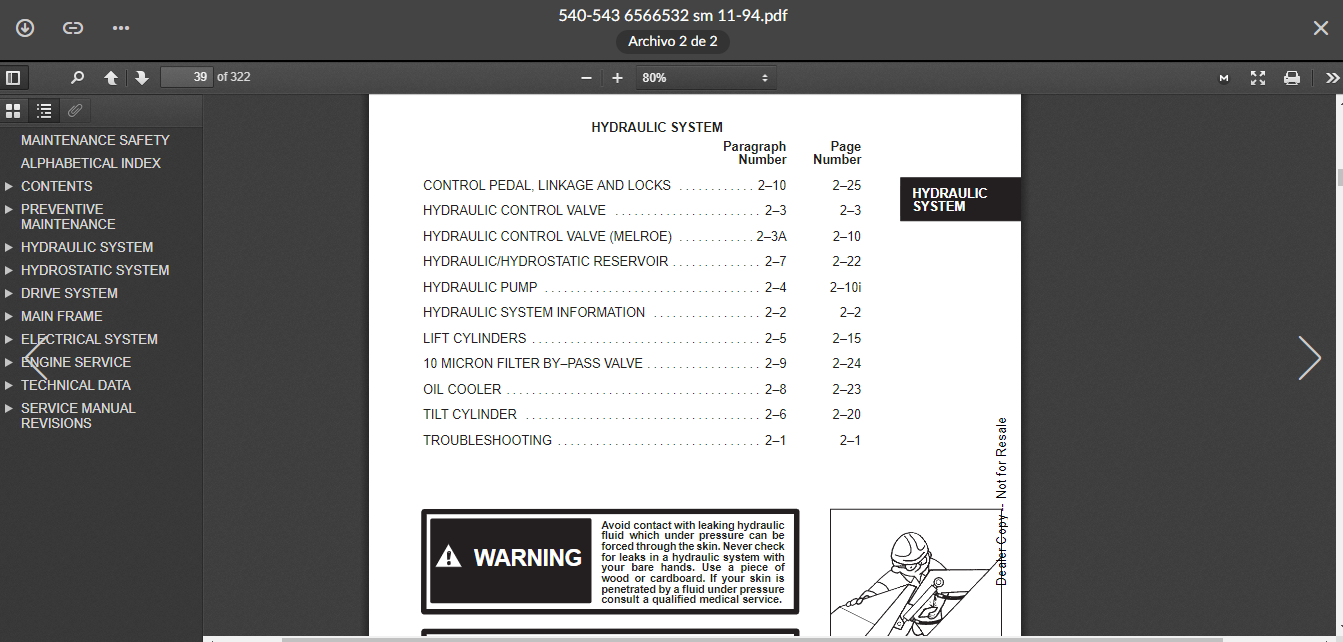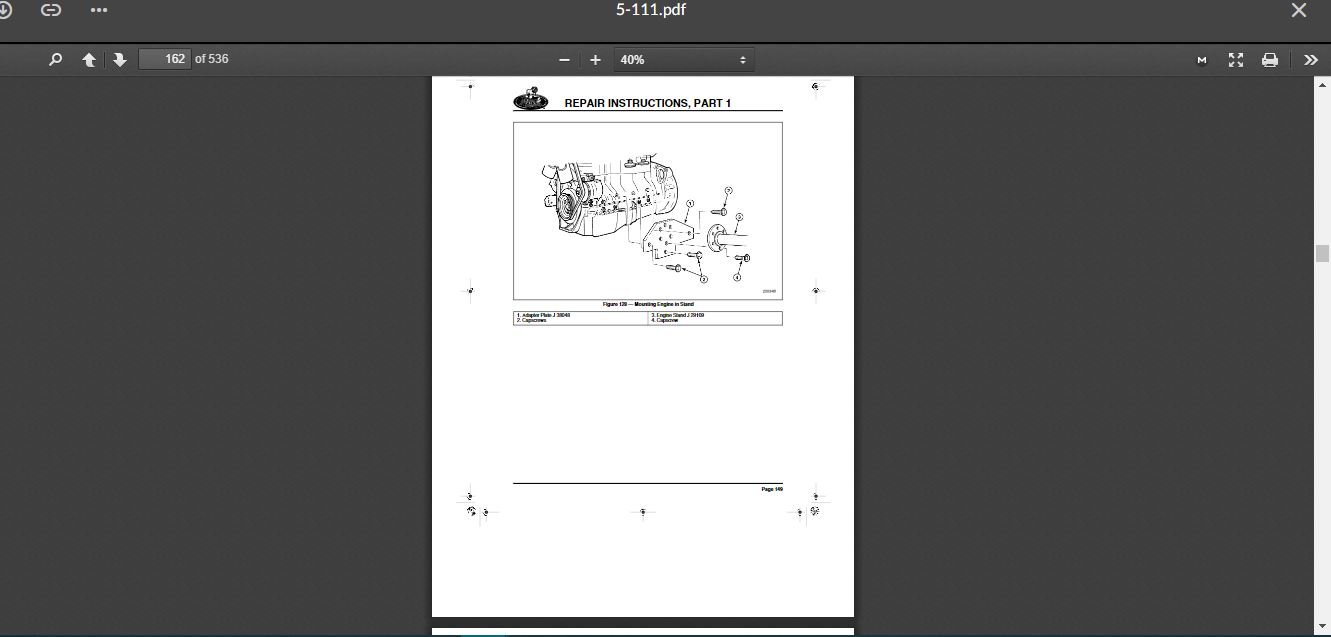Cummins ISB4.5 CM2150 Fault Code: 2772 PID: SPN: 3226 FMI: 15 Aftertreatment Outlet NOx – Data Valid But Above Normal Operating Range – Least Severe Level.
Circuit Description
The aftertreatment outlet nitrogen oxides (NOx) sensor is a smart device that communicates with the engine control module (ECM) via the J1939 data link. The aftertreatment outlet NOx sensor receives power and a ground directly from the battery. The aftertreatment outlet NOx sensor performs its own internal diagnostics and reports malfunctions back to the primary engine ECM, using the J1939 data link. The aftertreatment outlet NOx sensor is permanently attached to the NOx control module. They are serviced as a single component and can not be replaced individually. The aftertreatment outlet NOx sensor is used to measure the outlet NOx emissions from the engine.
Component Location
The aftertreatment outlet NOx sensor location can vary, depending on engine application. It is usually located in the exhaust system, at the outlet of the aftertreatment catalyst.
Conditions for Running the Diagnostics
This diagnostic has to meet specific engine and aftertreatment conditions to run and complete. The NOx sensor gathers data over varying engine speeds and loads. When enough data has been gathered, the diagnostic will run, make a pass/fail decision, and begin to gather data again.
Conditions for Setting the Fault Codes
This fault code is triggered when the diagnostic detects that the NOx output is higher than a calibratible value for two consecutive ignition cycles.
Action Taken When the Fault Code is Active
The ECM illuminates the amber CHECK ENGINE light and/or the malfunction indicator lamp (MIL).
Conditions for Clearing the Fault Code
-This fault code can not be cleared with INSITE™ electronic service tool. It is necessary to drive or operate the vehicle on a chassis dynamometer in order to validate the repair and for the fault code to go inactive.
-Connect INSITE™ electronic service tool, and start the “Aftertreatment High NOx Reset” test from the “ECM Diagnostic Tests” screen. Operate the vehicle per the instructions on the screen. If the completion status of the NOx reset test slows or stops advancing, vary the engine speed and load until the NOx reset test completes data collection and a decision is made. See below for additional tips to assist in operating the diagnostic.
-The ECM will turn off the amber CHECK ENGINE light and/or MIL immediately after the diagnostic runs and passes.
-Use INSITE™ electronic service tool to verify that the fault code is inactive.
The inactive fault code will be cleared from memory after 9600 hours of engine operation without a re-occurrence.
Tips for conducting the diagnostic:
-Aftertreatment selective catalytic reduction (SCR) catalyst intake and outlet temperatures should be above 240°C [464°F].
-Load the engine by operating at approximately 1000 rpm while in high gear.
-Apply the throttle at greater than 60 percent to allow the dosing percentage to be over 100 percent.
-Vary the engine speed between 1000 and 1500 rpm.
-Try to achieve a dosing value of just over 100 percent with as little throttle as possible
Possible Causes
-Diesel exhaust fluid quality is not within specification
-External leaks in the diesel exhaust fluid dosing unit and/or diesel exhaust fluid lines
-Aftertreatment nozzle has malfunctioned
-Aftertreatment diesel exhaust fluid dosing unit has malfunctioned or become damaged
-Sulfur content of the diesel fuel is too high, fouling the SCR catalyst and resulting in high NOx output
-Aftertreatment nozzle is partially or completely plugged.
Related
-
VOLVO PREMIUM TECH TOOL PTT 2.7.116 + APCI 2021 + devtool ( ONLINE )
Trucks software $80.00Rated 0 out of 5
Related products
-
Allison 1000 & 2000 Gen 4 Fault Codes: P0876 Transmission Reverse Pressure Switch Circuit Stuck Open
1000 & 2000 Gen 4 $50.00Rated 0 out of 5 -
Allison 1000 & 2000 Gen 4 Fault Codes: P1892 Throttle Position Sensor Pulse Width Modulation (PWM) Signal High Input
1000 & 2000 Gen 4 $50.00Rated 0 out of 5 -
Allison 1000 & 2000 Gen 4 Fault Codes: P2810 Solenoid G Electrical
1000 & 2000 Gen 4 $50.00Rated 0 out of 5 -
Allison 1000 & 2000 Gen 4 Fault Codes: P0847 Transmission Pressure Switch Solenoid D Circuit Stuck Closed
1000 & 2000 Gen 4 $50.00Rated 0 out of 5 -
Allison 1000 & 2000 Gen 4 Fault Codes: U1000 Class 2 Loss of Serial Data Communication
1000 & 2000 Gen 4 $50.00Rated 0 out of 5 -
Allison 1000 & 2000 Gen 4 Fault Codes: P0873 Transmission Pressure Switch Solenoid E Circuit High
1000 & 2000 Gen 4 $50.00Rated 0 out of 5 -
Allison 1000 & 2000 Gen 4 Fault Codes: P0122 Pedal Position Sensor Circuit Low Voltage
1000 & 2000 Gen 4 $50.00Rated 0 out of 5 -
Allison 1000 & 2000 Gen 4 Fault Codes: U1016 Class 2 J1850 (Class 2) Powertrain Controller State of Health Failure
1000 & 2000 Gen 4 $50.00Rated 0 out of 5 -
Allison 1000 & 2000 Gen 4 Fault Codes: U2104 CAN Bus Reset Counter Overrun
1000 & 2000 Gen 4 $50.00Rated 0 out of 5 -
Allison 1000 & 2000 Gen 4 Fault Codes: P0123 Pedal Position Sensor Circuit High Voltage
1000 & 2000 Gen 4 $50.00Rated 0 out of 5 -
Allison 1000 & 2000 Gen 4 Fault Codes: P0870 Transmission Pressure Switch Solenoid E Circuit
1000 & 2000 Gen 4 $50.00Rated 0 out of 5 -
Allison 1000 & 2000 Gen 4 Fault Codes: U1301 J1850 (Class 2) Serial Data Communication Link Low
1000 & 2000 Gen 4 $50.00Rated 0 out of 5 -
Allison 1000 & 2000 Gen 4 Fault Codes: U1064 J1850 (Class 2) TBC Controller State of Health Failure
1000 & 2000 Gen 4 $50.00Rated 0 out of 5 -
Allison 1000 & 2000 Gen 4 Fault Codes: P0871 Transmission Pressure Switch Solenoid E Circuit Stuck Open
1000 & 2000 Gen 4 $50.00Rated 0 out of 5
-
SERVICE MANUAL International Engines MaxxForce 7 (2010 & Newer)
INTERNATIONAL ENGINES $34.00Rated 0 out of 5


